Bruce DeSilva's Blog, page 26
April 7, 2015
“A Scourge of Vipers” Officially Released Today, April 7
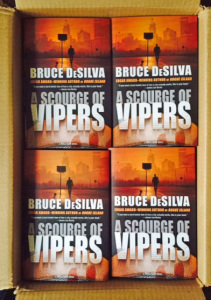 Today is the official release date for A Scourge of Vipers, the fourth��novel in my Edgar Award-winning series of crime novels.
Today is the official release date for A Scourge of Vipers, the fourth��novel in my Edgar Award-winning series of crime novels.
Click here for links to online booksellers, including both independents and chains, that are carrying it.
Publishers Weekly and Library Journal, two of the bibles of the publishing industry, have both given in coveted starred reviews, the latter calling it “quality all the way.”
The Providence Journal review says: “DeSilva plainly belongs in the company of Raymond Chandler and Dashiell Hammett, a contemporary tour guide through society���s seedy underbelly who has fashioned a masterpiece of hard-boiled crime melodrama.”
And James Lee Burke, a Mystery Writers of America Grand Master, says: ���Bruce DeSilva writes a story in the tradition of Hammett and Higgins, and he writes it with the knowledge of an old-time police reporter. DeSilva knows cops, corruption in eastern cities, wiseguys, rounders, bounders, gamblers, and midnight ramblers. He writes with authority about the issues of our times, and he does it with honesty and candor. If you want a hardboiled view of how a city actually works, this is your book.���

April 5, 2015
“A Scourge of Vipers is a Masterpiece” — The Providence Journal
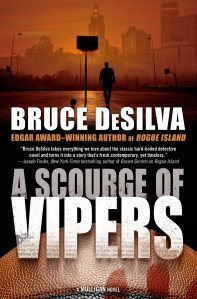 The Providence Journal always reviews my hard-boiled crime novels, perhaps because the books, featuring investigative reporter Liam Mulligan, are set in that city. This time the newspaper tapped veteran thriller writer Jon Land, a Rhode Island native, to write the review. Here’s what he said in part:
The Providence Journal always reviews my hard-boiled crime novels, perhaps because the books, featuring investigative reporter Liam Mulligan, are set in that city. This time the newspaper tapped veteran thriller writer Jon Land, a Rhode Island native, to write the review. Here’s what he said in part:
If A Scourge of Vipers were a film, it would���ve been shot in black and white, full of empty paper coffee cups and laced with stale cigarette smoke. Bogart could play a deadpan Mulligan as a 21st-century update of Sam Spade or Phillip Marlowe. DeSilva plainly belongs in the company of Raymond Chandler and Dashiell Hammett, a contemporary tour guide through society���s seedy underbelly who has fashioned a masterpiece of hard-boiled crime melodrama.
You can read the full text of the review here.
A Scourge of Vipers, the third novel in my Edgar Award-winning series, had already received coveted starred reviews from Publishers Weekly and Library Journal. The book officially goes on sale April 7 and can be ordered in advance from one of the online booksellers you can find by clicking here.
And if you’d like to know more about the reviewer, you can read about Jon Land and his novels here.

April 3, 2015
My Interview With Fellow Crime Novelist Timothy Hallinan

Timothy Hallinan
I interviewed fellow crime novelist Timothy Hallinan for Crimelandia, the website of Left Coast Crime, a major crime fiction conference where he was recently awarded a coveted Lefty Award. Here’s the text of our conversation:
Bruce DeSilva: You have two critically-acclaimed crime series going, one featuring Poke Rafferty, an American journalist living in Bangkok, and the other chronicling the life of Junior Bender, a Los Angeles burglar with tormentors on both sides of the law. This has you turning out two books a year. How do you manage this and remain sane ��� or am I making a false assumption?
Hallinan: It’s a false assumption. I actually missed the deadline for the 2013 Rafferty book, For the Dead, and unless I put my ass in the saddle and keep it there, I’m going to miss the deadline for this year’s Junior, King Maybe. Despite all the energy I sink into looking carefree, I live chin-deep in a freezing tidepool of anxiety. If I’m not writing, I’m anxious that I’m going to miss the deadline. If I am writing, I’m anxious about the quality of the work I’m doing and���since I’m the poster child for Pantsers Anonymous���whether I’ll ever figure out whodunnit and how to catch him or her. Raymond Chandler once said, ���The best way to keep the reader from guessing whodunnit is not to know yourself.��� What he didn’t mention is that it can also turn your hair prematurely gray.
The two series are startlingly different in voice and tone. The Rafferty novels are dark and literary. The Bender novels verge on slapstick-noir. They are so different that I would never guess the same person had written them if your name wasn���t on the covers. While this isn���t unique (Lawrence Block���s�� Matthew Scudder and Bernie Rhodenbarr novels spring to mind), it is a rare display of virtuosity. How can you be two different writers at the same time?
First, thanks for the huge compliment. I love Block, and I also love Donald Westlake, who wrote both the noir Richard Stark novels and, under his own name, the hilarious Dortmunder books.
The root of the difference in my books is the voice. I can’t think of any single aspect of writing that changes the way a story is presented more than the voice in which it’s told. The Poke Rafferty books are written in a sort of close third person, with the camera often trailing a few feet behind Poke but occasionally flying off to show us something else, something Poke doesn’t know about. I try to make this voice neutral, to keep the narrative transparent so that we’re more aware of the characters and their feelings than we are of the writer who’s between us and them. Ideally, the third-person narrative works like a clear window through which we see the story and which rarely calls attention to itself.
The Juniors, on the other hand, are in first person, and it’s Junior’s first person, which means it’s devious, it’s skeptical, it’s got a very wide frame of reference and���most important���it’s fundamentally crooked. There are people he always deals honestly with (two, to be precise, and it’s going to widen to three if I can ever finish King Maybe), but for everyone else, the truth is just one more conversational gambit. Once I write an opening sentence in Junior’s voice, eighty percent of the book’s characteristics are set in stone. It’s going to be irreverent. It’s going to be deceptive. It’s going to be smart, because Junior is very smart, and sometimes he’s smarter than he needs to be, just to keep himself from getting bored.
The voice changes the way we read the story. There’s as much injustice, as much violence, as much exploitation, as much killing, in a Junior Bender book as there is in a Poke Rafferty story. There are even similar family ties and sentiments. It’s the voice that makes them so different. To take one example, in Little Elvises, Junior opens the door of his motel room, finds a barely sentient killer there carving words into himself with a blade, and his girlfriend, Ronni, either asleep or dead from a massive injection of horse tranquilizer. The killer is damage to hurt Junior and to warn him to drop an investigation. All pretty grim. And yet, I think it’s a really funny scene, and the thing that makes the difference is the voice in which it’s told.

Timothy (r) and me at a recent Bouchercon crime fiction conference
Graham Greene famously said that some of his novels were literature and that others were mere entertainments, but he kept changing his mind about which books belonged in which category. You���ve told me that you consider the Rafferty novels your serious work and that you bat out the Bender novels for fun; but I think the two are equally good���that Bender is today���s Los Angeles as Raymond Chandler would have written it. Has the reception the Bender novels have received changed your assessment of them?
I love Graham Greene, but I hate that division of his work into, essentially, books and something less than books, and I think the reason he kept changing his mind is that the entire concept of ���this book is a novel and this book is an entertainment��� is poppycock. The division of works of fiction into genres is, I think, meretricious and insulting to those of us who don’t write ���literary fiction.��� A good book is a good book. Yes, some books are towering achievements, some are smaller achievements, and some are failures. But you don’t catch art historians looking back at, say, Renaissance frescoes and saying ���Giotto was an artist but Taddeo Gaddi was a cartoonist.��� They were both artists, they both worked in the same medium, and the work of one is more historically significant than the work of the other, but both painted on their knees, so to speak, to communicate their vision to us. As do most writers who take their work seriously.
I think the assignment of certain kinds of books to a genre ghetto is stupid and meretricious. Is Chandler an artist? Is James Lee Burke? Is Lippman? Of course, they are. Are they better writers than many of those who are dubbed ���literary writers?��� Of course, they are; they’re better than some and worse than others.�� So, uhhhhhh, where’s the distinction?
And thanks for the Chandler comparison. I’ll work to deserve it.
And the Juniors aren’t actually easier to write than the Pokes. They’re just more fun.
Some crime novelists such as Elmore Leonard, who wrote some of the finest prose American writers have produced in a century, are basically just trying to entertain. Others such as George Pelecanos and Laura Lippman use the popular form of the crime novel as a vehicle for wrestling the social ills that keep us up at night. Which kind do you prefer to read ��� and write?
I think the most important thing in any book is character. I believe that fiction exists in large part to allow us to live lives we otherwise couldn’t, and we live them through the characters, not the stories, in the books we read. The revelation of character when it’s stretched out, turned semitransparent, by crisis, is perhaps the basic mechanism of fiction. If those crises are provoked by what we term social ills, that’s fine. If they’re occasioned by purely internal issues or conflict, that’s fine, too. I think the main thing is that the characters have to live on the page and in our imaginations, and the things they do and experience have to arise naturally and even inevitably as a result of their characters, and not be imposed upon them by the writer’s need to make a social or political point, on the one hand, or, on the other, to create a tricky, multiple-reversal plot. Your Mulligan books are great examples. Yes, they’re very much about social and political issues on one level, but ultimately they’re about how a decent and resourceful man deals with those issues as he comes up against them. Ultimately, I think all good books are about character first and foremost.
Which of your two protagonists is most like you? (I���d like to think it���s Junior.)
They’re both me, on a good hair day. I like the same things about Junior that I like about Poke: his commitment to the people he loves, his ability to improvise, his innate fairness, the fact that most people can beat him up, and do. They’re actually both better and more interesting people than I am. But I think we are all alike in the sense that we all try to keep the promises we’ve made, and we feel disappointed in ourselves when we don’t. Of course, Junior’s moral code is much more flexible than either Poke’s or mine, which is one of the things that makes him so much fun to write. My moral code is a little more restrictive than Junior’s.
Actually, my favorite character to write in either of these series is Poke’s adopted daughter, Miaow.
Bangkok and Los Angeles are more than just your settings. They come to life as characters in their own right. Tell us about the importance of place in your work.
To me, setting is the interaction between character and place. One of my least favorite kinds of bad writing is the ���laundry list��� way of handling setting: ���As the sleek black car purred its way uptown, threading its way between mirror-buffed limos and dented taxis, Doris passed the retail palace of Bloomingdale’s, the child’s paradise of FAO Schwartz, and the shining art deco spire of the Chrysler Building.��� (If those are in the wrong order, please pretend it was on purpose.) This kind of writing tells me nothing about either the Chrysler Building or Doris.�� It’s just postcards.
The Bangkok we encounter in the Rafferty novels is actually several different Bangkoks. Miaow, who lived on the sidewalk for years, has a very different Bangkok than Rose’s, who ran to it as a teenager being forced into the sex trade, and hers is almost completely unlike Poke’s, who arrived here as a relatively privileged adult and still feels at times like the whole thing is on the other side of a pane of glass in a department-store window.�� Arthit, as a cop, occupies a different Bangkok than any of them. If you do get the sense of a three-dimensional city from the books, I think it’s because you see it from multiple perspectives.
The Los Angeles in the Junior Bender books, is a burglar’s L.A. A burglar sees a block of expensive houses very differently than a guy with a map to the stars’ homes. What realtors like to call, as a selling point, a cul de sac, is, to a crook, a dead end, plain and simple. The hilly, curving streets South of Ventura Boulevard aren’t just where TV series second leads and minor studio executive live; they’re also a great place to lose a follower or to turn the tables on one.
Additionally, Junior has a broad but specialized frame of reference; he knows a lot about how Los Angeles and the Valley grew, and why they sprawl across the map as they do and why some areas are�� tempting pockets of luxury and others aren’t. As a professional asset, he’s developed considerable knowledge about a wide spectrum of luxury goods, from jewelry to Shaker furniture to the history and evolution of the croquet set. He’s developed the ability, as someone says in one of the books, to tell the stuff from the duff. So even your living room would look different to Junior than it does to me: I’d say something like ���Nice rug,��� and he’d spend his first thirty second spotting the two or three things worth pocketing. All that information shapes his environment and his reaction to it, and (since the narrative is in his voice) the way it’s described.
Your novels display a mastery of your craft, but writers tend to shrivel unless they grow. What can you continue to do to get better with each novel?
I appreciate the kind words about my mastery of my craft, especially since I almost never feel like I know what I’m doing. Most of the time, I’m just trying to write a story that I would personally like to read. In terms of growth, though, I think all good work is done on tiptoe. If you’re not stretching, you’re not growing.
I usually have only a vague idea of what the story will be when I begin to write a novel. But I do like to try to set myself a challenge: I usually try to write something I don’t know how to write. When I wrote The Queen of Patpong, I was terrified of writing women when there were no men around. Nevertheless, there’s barely a male character in the 40,000-word section that tells the story of how a shy, freakishly tall village teenager named Kwan became Rose, the ���queen��� of Patpong���a kingdom, as she describes it of whores and viruses���and how she survived it with her heart and spirit intact. Writing it was one of the most difficult and liberating experiences of my life.
In this year’s Poke, For the Dead, I wanted to tell the most important parts of the story from the perspective of a female adolescent. In next year’s, The Hot Countries, most of the story is about guys in their seventies and early eighties, guys who came to Bangkok straight from the hellhole of Vietnam, and one of them is in the grip of Alzheimer’s. I’d never done anything like that before.
With the Juniors, the central challenge was how to make a thief sympathetic without turning him into The Hallmark Burglar, a sort of criminal unicorn who steals from the bad and leaves sparkly hand-wrapped gifts for the kiddies. In the first book, Crashed, I pushed it to the point where Junior kills someone who’s essentially defenseless just because, in Junior’s point of view, he really deserved to die. In Herbie’s Game, I wanted to write about the impact on Junior of being set rudderless by the death of the person who served as his surrogate father, Herbie Mott, and the dawning realization that Herbie wasn’t really the man Junior thought he was.
And on and on. I’m always trying to do something I’m not certain I can do.
What are your strategies for overcoming obstacles when the writing comes hard?
Just keep writing. I’ve come to believe that writing isn’t so much making something up; it’s more like uncovering something that already exists, preferably without breaking it. I usually feel like I’m working in an old dark mine, and the story is an undiscovered vein that meanders through the earth. All I can do is keep digging. I might not hit the vein even if I do dig, but I’m guaranteed not to hit it if I don’t. And if I write a bunch of junk, well, that’s one direction the vein isn’t in. But I do know it when I hit it. Or so I like to tell myself.
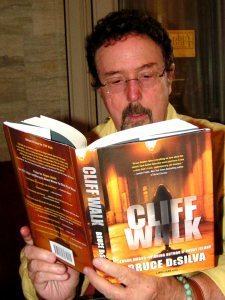
Tim reading my second Mulligan novel, “Cliff Walk”
What books that you’ve read lately do you most admire?
I loved Emily St. John Mandel’s Station Eleven and David Mitchell’s The Bone Clocks, as well as the nonfiction A Spy Among Friends, by Ben Macintyre, If anyone had told me I’d ever read another book about Kim Philby I would have laughed politely into my hand, but Macintyre’s is a stunner. Wendy Hornsby’s new Maggie MacGowen novel, The Color of Light, is the latest, and one of the best, entries in a favorite series. And you’re asking this question at an auspicious (or suspicious) time because I just finished the ARC of your 2015 book, A Scourge of Vipers, and I think it’s your best yet, the richest and (so far) the saddest in your sustained and very lively elegy on the death of the American newspaper. On the classics front, I’m reading Trollope’s six Pallisers books for the fourth or fifth time, and they’re holding up great. I read Proust for the first time last year, and it was like spending a decade in a perfectly proportioned cathedral full of very dicey people who had no business being there. I loved it.
Now that the film rights to Junior Bender have been acquired by Eddie Izzard for NBC, do you plan to do any screen writing? And now that you���re going Hollywood, who are you going to morph into, Sean Penn or Phil Spector?
Well, let’s see whether the series makes it onto the air. There’s many a slip, etc. But whatever happens, I’m thrilled that Junior got a laugh out of Eddie Izzard, who I think is the funniest comic working. And if I do turn into Sean Penn, I hope I can find a little more to enjoy than he apparently does about being rich and famous. There’s a guy who should get a pie in the face every time he scowls.
And no, I’m not going to do any screenwriting. It’s taken me most of a long, long life to learn how to write a novel, and there are times when that eludes me. At my pace, I’d be 150 before I wrote a page worth filming.
Hell, I’ll be happy if I finish another book.
Interviewer Bruce DeSilva grew up in a parochial little mill town bereft of metaphors, assonance, and irony. Nevertheless, his fiction has won the Edgar and Macavity Awards; has been listed as a finalist for the Shamus, Anthony, and Barry Awards; and has been published in ten foreign languages.�� Previously, he���d been a journalist for 40 years.�� He and his wife, the acclaimed poet Patricia Smith, share a book-clogged house in New Jersey with two enormous dogs. His fourth Liam Mulligan novel, A Scourge of Vipers, will be published next month, April .
You can find a lot of cool stuff on the Crimelandia website here.

“Publishers Weekly” Names “A Scourge of Vipers” A Pick of the Week
 Publishers Weekly, the bible of the book-publishing biz, just named my latest hard-boiled crime novel, A Scourge of Vipers, one of its “picks of the week” for April 6.
Publishers Weekly, the bible of the book-publishing biz, just named my latest hard-boiled crime novel, A Scourge of Vipers, one of its “picks of the week” for April 6.
I’m honored to be named in the same breath with the likes of Philip Kerr, Ann Packer, Larry Kramer, and Amit Chaudhuri.
Previously, the magazine gave a coveted starred review to the new novel. Here’s what PW had to say about it:
A Scourge of Vipers by Bruce DeSilva (Forge) – Edgar-winner DeSilva���s excellent fourth Liam Mulligan novel (after 2014���s Providence Rag) finds the Providence, R.I., investigative journalist on hard times professionally. His newspaper, The Dispatch, has been reduced to a shell of its former self, publishing fluff rather than substance and largely staffed by wet-behind-the-ears newcomers. His jerk of an editor, Charles Twisdale, is more concerned with the bottom line and advertising revenue than reporting the news, leaving Mulligan feeling like a dinosaur on the verge of extinction. But if that���s to be his fate, the reporter is determined to go down swinging, pursuing the truth behind a series of murders that appear linked to the governor, colorfully known as ���Attila the Nun,��� who hopes to solve the state���s public-pension crisis by legalizing sports gambling.
You can find all the magazine’s picks here.
The novel is being published in hardcover and e-book editions on April 7, with a downloadable audio version coming soon from Audible. You can order the book in advance by clicking on one of the links you’ll find here.

Why I Never Outline My Novels, Preferring to Discover The Story As I Go Along
Some novelists outline their plots before they start to write. Others don’t. There’s no right way to do it. Each writer does what’s best for him or her.
I never outline my hard-boiled crime novels. In this guest blog I wrote for the Booking Mama website, I explain why I write that way and how it works.
Here’s the text:

Elmore Leonard
A few years before he died, the great Elmore Leonard strolled into the Mysterious Bookshop in Manhattan for a book signing, dropped into an easy chair, and told the crowd, ���Something terrible just happened. I���m only halfway through writing my next novel, and my main character just got shot dead.���
I understood just what he meant. It���s the sort of surprise that can happen to a writer who doesn���t create an outline first.
Each time the late Robert B. Parker started a new Spenser for Hire novel, he jotted a brief plot outline, just two or three pages long. James Ellroy, author of some of the best noir novels ever written, creates detailed outlines first. In fact, he claims that his outlines are sometimes longer than his finished books. Timothy Hallinan, author of the remarkable Poke Rafferty and Junior Bender mysteries, doesn���t plan anything in advance; but once he���s ten chapters into a novel, he outlines each chapter to keep track of what he���s already done.
Leonard never outlined, and neither do I. There���s no right way to build a novel. Each writer does what works best for him or her.
 I begin only with a general idea of what a book will be about. I started my latest crime novel, A Scourge of Vipers, with the notion of exploring two themes���the hypocrisy surrounding illegal sports betting and the corrupting influence of big money on politics. Then I just set my characters in motion to see what would happen.
I begin only with a general idea of what a book will be about. I started my latest crime novel, A Scourge of Vipers, with the notion of exploring two themes���the hypocrisy surrounding illegal sports betting and the corrupting influence of big money on politics. Then I just set my characters in motion to see what would happen.
Writing this way frees the characters to take over the story as if they have wills of their own.
In my first book, Rogue Island, my protagonist���s ex-wife started out as a minor irritant and turned into a vengeful bitch. A big dangerous hit man shrank to five-foot five and developed a bad case of psoriasis. A fire chief who began as a minor character decided to become a major one. And then he decided he was a she.
In A Scourge of Vipers, the action took off when Rhode Island���s colorful fictional governor, a former religious sister nicknamed Attila the Nun, proposed legalizing sports gambling to ease the state���s budget crisis. Powerful organizations with a lot to lose���or gain���if gambling was made legal promptly flooded the little state with millions of dollars to buy the votes of state legislators. And then all hell broke loose.
First, a powerful state senator turned up dead. Then a mobbed-up bag man got shot down, and his cash-stuffed briefcase went missing.
I had no idea who killed them or who stole the money. All I knew was that my protagonist Liam Mulligan, an investigative reporter for the dying Providence Dispatch, was bound to investigate both the murders and the effort to corrupt the state���s politicians.
But when he started to dig into the case, Mulligan discovered that the bottom-feeding conglomerate that had just bought the paper had no interest in serious public-interest reporting. So he went rogue, digging into the story on his own. Soon, shadowy forces tried to derail him by threatening his reputation, his job, and finally his life.
I didn���t see any of that coming.
I write this way partly because it���s just the way my mind works���and because I figure that if I don���t know what���s going to happen next, my readers probably won���t either. But the main reason I do it is that I enjoy discovering the story as I go along. It���s what sits me down at my writing desk every day. If I knew in advance how the story was going to turn out, my desire to write it would simply evaporate.
I write each scene very fast. When it���s completed, I go back over it and discover that a lot of what I wrote is trash. But inevitably, some of the things that spilled out of my keyboard turn out to be gems I would never have been able to think up in advance.
During the four decades that I worked as a print journalist, I often heard novelists talk about how their characters came to life and took control of their stories. Back then, it always sounded like mystical claptrap to me. After all, only one person���the writer���touches the keyboard. But when I became a novelist, I discovered to my amazement that it was true.
But I also learned that there���s nothing mystical about it. When fictional characters interact or speak with one another, what happens is a lot like what occurs in life. If you start talking to me, you begin with a clear idea of what you want to say. But then I react to your words, you react to mine, and soon the conversation veers off in a direction neither of us could have anticipated. The same thing happens with fiction���especially when you shun outlines and write first drafts of your scenes rapidly.
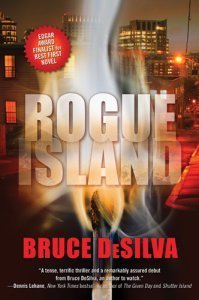 When I finished my first novel, the Edgar Award-winning Rogue Island, I gave it to a half-dozen trusted friends to see what they thought. That was a mistake because it generated a lot of confusing and conflicting advice.
When I finished my first novel, the Edgar Award-winning Rogue Island, I gave it to a half-dozen trusted friends to see what they thought. That was a mistake because it generated a lot of confusing and conflicting advice.
Since then, I���ve given my first drafts only to my agent, Susanna Einstein, the best story doctor I know, and to my wife Patricia Smith, one of the finest poets working in English.
Susanna���s advice deals mainly with the structure of the story. With my third novel, Providence Rag, she identified flaws that required a top-to-bottom rewrite. With A Scourge of Vipers, she had only a handful of minor suggestions.
Patricia���s advice deals primarily with the beauty of the language. She helps me make my writing more lyrical. Her writing style is sensual to the point of sensory overload while mine tends to be spare to the point of sensual deprivation. So she also encourages me to make my prose more descriptive.
Every writer should have such friends.
Booking Mama, the blog where this article was first published, has a lot of cool stuff. You can check it out here.
And A Scourge of Vipers, being published in hard cover and e-book editions on April 7 (with a downloadable audio version from Audible soon to come) can be ordered in advance by clicking on one of the links found here.

April 1, 2015
Why the Hero of My Crime Novels Is a Newspaper Reporter Instead of a Cop or a P.I.
In latest installment of The Big Thrill, the online magazine of the International Thriller Writers organization, I explain why I made the protagonist of my crime novels a newspaper reporter and how I, and many of my colleagues, use the popular genre to address serious public issues. You can read the text of the article below.
 Meanwhile, my latest novel, A Scourge of Vipers, will be published on April 7 and can be ordered in advance from Amazon and other online booksellers by clicking one of the links you’ll find here.
Meanwhile, my latest novel, A Scourge of Vipers, will be published on April 7 and can be ordered in advance from Amazon and other online booksellers by clicking one of the links you’ll find here.
The magazine article:
Before I wrote my first novel, I was a print journalist for four decades, spending many of those years editing investigative stories that won every journalism prize including the Pulitzer. It is not surprising, then, that the fiction writers I most admire are the ones who use the popular form of the crime novel as a platform to talk to mass audiences about serious social issues���novelists such as George Pelecanos, Laura Lippman, James Lee Burke, and Richard Price.
The last major story I edited before I fled journalism exposed the plight of child workers, some of them as young as five years old, laboring in the gold mines of West Africa. The story traced the gold as it moved through a series of middlemen to Swiss smelters and banks and then on to some of the world���s most prestigious producers of luxury goods. The author, Rukmini Callimachi, was a Pulitzer finalist for that one. I have nothing but admiration for the journalists who continue do such work, but over the last couple of decades, the decline of print journalism has made it increasingly difficult for them to do so.
Most newspapers are circling the drain. A handful of big ones, including The New York Times and The Washington Post, still do a solid job of reporting important national and international news, but even they aren���t as aggressive and comprehensive as they once were. Meanwhile, TV broadcast news organizations, never all that good to begin with, have slashed their reporting staffs. Cable news has deteriorated into a platform for partisan propaganda, shouting talking heads, and celebrity trivia. And few online news websites do much in-depth reporting, culling much of their news from declining newspapers.
I can���t begin to describe what a disaster this has been for the American democracy. Reporting is expensive, and investigative reporting is even more so. So far, no one outside of declining newspapers has demonstrated the willingness or resources to replace newspapers as honest brokers of important news and information. That���s why I turned to crime fiction as a way to reach readers with stories that should be told.
I didn���t leave journalism. It left me.
A Scourge of Vipers is the fourth novel in my series featuring Liam Mulligan, an investigative reporter for the fictional Providence Dispatch in the little city of Providence, R.I. I made my protagonist a journalist, instead of a policeman or a private eye, because I wanted to write a series of books that would chronicle the decline of the newspaper industry. Each of them works as a suspenseful crime story, but it is my hope that as readers watch the care and skill with which Mulligan works, they will gain a greater appreciate for what is being lost as the business Mulligan and I both love fades into history.
 In addition, each novel addresses a separate issue that should concern all of us. For example, Cliff Walk, the second book in the series, is at once a hardboiled murder mystery and an exploration of sex and religion in an era of ubiquitous pornography and sex-for-hire internet sites.
In addition, each novel addresses a separate issue that should concern all of us. For example, Cliff Walk, the second book in the series, is at once a hardboiled murder mystery and an exploration of sex and religion in an era of ubiquitous pornography and sex-for-hire internet sites.
A Scourge of Vipers addresses two themes: the hypocrisy surrounding legal and illegal sports betting and the corrupting influence of big money on politics.
The novel was inspired by New Jersey Governor Chris Christie���s effort to legalize sports gambling in the state where I live so that he can tax the revenue. What would happen, I asked myself, if the same issue arose in Rhode Island, a state where the average candidate for the state legislature spends no more than ten thousand dollars on his election campaign? I set my characters in motion to find out.
The action begins when the state���s fictional governor, a former Little Sisters of the Poor cenobite nicknamed Attila the Nun, proposes to legalize sport betting in order to solve the state���s budget crisis. Her proposal unleashes a series of unanticipated consequences. Pro sports leagues, casino operators, and mobsters, some of whom favor legalization and others of whom oppose it, flood the state with millions of dollars to buy the votes of state legislators.
When a powerful state legislator turns up dead, a mobbed-up bagman is shot down, and his briefcase full of cash goes missing, Mulligan wants to investigate, but the corporate vultures who own The Dispatch have no interest in serious reporting. So Mulligan goes rogue, digging into the story on his own.
Shadowy figures who want the truth to remain hidden promptly seek to derail his investigation by trying to destroy his reputation, his career, and finally, his life.
Crime fiction is a great way to entertain readers and reach them with stories that matter at the same time. I plan to keep writing them, and I am confident that many of my colleagues will too.
The Big Thrill, the online magazine where this article first appeared, has�� lot of great stuff. Check it out here.

March 29, 2015
James Lee Burke Raves About “A Scourge of Vipers”
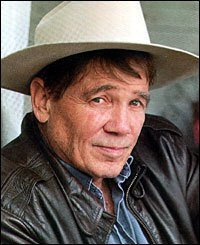
James Lee Burke
Here���s what American Mystery Writers of America Grandmaster James Lee Burke says about A Scourge of Vipers, the new crime novel in my Edgar Award-winning series:
���Bruce DeSilva writes a story in the tradition of Hammett and Higgins, and he writes it with the knowledge of an old-time police reporter. DeSilva knows cops, corruption in Eastern cities, wiseguys, rounders, bounders, gamblers, and midnight ramblers. He writes with authority about the issues of our times, and he does it with honesty and candor. His newsman protagonist feigns the role of the cynic but in his way represents the virtues most of us admire. If you want a hard-boiled view of how a city actually works, this is your book.���
 Burke, one of my literary heroes, rarely writes cover blurbs for other authors, so I’m honored that he took the time to do it for me.�� And he did more than that. After reading the manuscript months ago, he sent me a short critique and suggest several small improvements. I had time to make them before the book was printed.
Burke, one of my literary heroes, rarely writes cover blurbs for other authors, so I’m honored that he took the time to do it for me.�� And he did more than that. After reading the manuscript months ago, he sent me a short critique and suggest several small improvements. I had time to make them before the book was printed.
A Scourge of Vipers is the fourth book in my series featuring Liam Mulligan, an investigative reporter for a dying Providence, Rhode Island, newspaper. The book, which has already received starred reviews from Publishers Weekly and Library Journal, will be published on April 7 but can be ordered in advance here.

March 27, 2015
John Lescroart Raves Over “A Scourge of Vipers”
 Here’s what New York Times best-selling thriller writer John Lescroart says about the latest book in my Edgar Award-winning series of hard-boiled crime novels:
Here’s what New York Times best-selling thriller writer John Lescroart says about the latest book in my Edgar Award-winning series of hard-boiled crime novels:
“‘A Scourge of Vipers’ has made me an instant Bruce DeSilva fan. In the tradition of the great noir protagonists, Liam Mulligan is a true hero with whom you’ll love spending time. DeSilva’s got the most entertaining narrative voice I’ve come upon in years–funny, wise, whip-smart, and just sensitive enough. He’s already got an Edgar Award and–damn his eyes!–this might be his second.”
The new novel, which has already received starred reviews in Publishers Weekly and Library Journal, will be officially published on April 7, can be ordered in advance here.

March 22, 2015
Interview About “A Scourge of Vipers,” The New Novel In My Edgar Award-Winning Series
 BookMarket Buzz Blog, one of the top online sites for talk about new books, interviewed me about A Scourge of Vipers, the latest crime novel in my Edgar Award-winning series featuring Liam Mulligan, an investigative reporter for a dying newspaper in Providence, Rhode Island. Here’s the text:
BookMarket Buzz Blog, one of the top online sites for talk about new books, interviewed me about A Scourge of Vipers, the latest crime novel in my Edgar Award-winning series featuring Liam Mulligan, an investigative reporter for a dying newspaper in Providence, Rhode Island. Here’s the text:
What inspired you to write your new book?
I���ve long been intrigued by the hypocrisy surrounding gambling on sporting events. Federal law bans it in all but four states that were grandfathered in, and most states (which rake in millions from official lotteries) also have laws against it. Yet the total Americans bet on sports is estimated at three hundred and eighty billion dollars annually���enough to fund the Pentagon for twelve months with enough left over to start another small war. Studies indicate that eighty-five percent of Americans place sports bets at least occasionally, much of it on the Super Bowl and the NCAA���s March Madness basketball tournament. Recently, a number of states including New Jersey, where I live, have proposed legalizing it so they can tax the revenue. The NCAA and the major sports leagues are vehemently opposed (although the NBA softened its opposition recently), claiming that legalization would threaten the integrity of their games. They take this position even though they profit handsomely from sports betting. It is, after all, a major reason why many people follow sports. But the sports leagues are not alone in viewing legalization as a threat. Las Vegas casinos want to keep their near-monopoly on legal sports gambling, and criminal organizations are aghast at the prospect of losing the cash they rake in from bookmaking. Pitting these powerful forces against one another in a struggle over legalization is a rich subject for a hardboiled crime novel.
What are some of the key themes presented in your new book?
In A Scourge of Vipers, Rhode Island���s colorful fictional governor, a former religious sister nicknamed Attila the Nun, proposes legalizing sports gambling to ease the state���s budget crisis. Powerful organizations that have a lot to lose���or gain���if gambling is made legal flood the little state with money to buy the votes of state legislators. As my protagonist, Liam Mulligan, digs into the story, several people including a state legislator and a mobbed-up bagman turn up dead. And shadowy forces try to derail Mulligan���s investigation by destroying his career, his reputation, and perhaps his life. The result is a suspenseful murder mystery that provides a vehicle for exploring the duel themes of the hypocrisy surrounding sports betting and the corrupting influence of big money on politics. This is the fourth novel featuring Mulligan, and each of them also deals with the decline of America���s newspapers���and the damage being done to the American democracy as these honest brokers of news and information fade into history. It is my hope that as readers see the skill and dedication with which Mulligan works, they will gain a greater appreciation for what is being lost.
Is it similar or different from your prior books?
Each Mulligan novel focuses on a different main theme. For example, the second, Cliff Walk, is at once a murder mystery and an exploration of sex and religion in the age of ubiquitous pornography. But each novel is also different because the ordeals I put Mulligan through can���t help but change him. At the start of Cliff Walk, for example, he believes that what men do with their money and what women do with their bodies is nobody���s business but their own. But as he investigates the public corruption that allows prostitution and pornography to flourish, he is forced to wade through the ugly underbelly of the sex trade; and what he finds challenges everything he has believed about sexual morality and religion. The evolution of Mulligan���s character keeps each new story fresh. But perhaps the main difference is that in A Scourge of Vipers, the tone is lighter. The first three novels were littered with innocent victims, but in the new book, nearly everyone who gets hurt had it coming.
What challenges or rewards came about from writing it?
Each book in the series has presented a different challenge. The first, the Edgar Award-winning Rogue Island, poured out effortlessly, the first draft needing only a few minor revisions. That made me think that the next one would also come easy, but instead, the plotting was a struggle. When I mentioned that to a crime-writing colleague, he said, ���Of course. You spent years thinking about the first book, and now you���re trying to write the second one in a few months.��� Luckily, A Scourge of Vipers also came easily; but now I���m struggling again as I try finish the next one, tentatively titled Dreadline, for publication next year. For me, the biggest challenge is always the same as the biggest reward: discovering the story as I write. I never outline. Instead, I being each novel with a clear idea of its theme and set my characters in motion to see what will happen. I do this partly because I figure that if I don���t know what���s going to happen next, my readers probably won���t either. But the main reason is that discovering the story is what puts my butt in my writing chair every day. If I knew in advance how it was all going to turn out, my desire to write the story would vanish.
Did you tap into the journalist side from your 40 years in the media when writing this book?�� My books are very much novels of place–an evocation of 21st century life in Providence, R.I. I know Providence well because I began my journalism career there as an investigative reporter. Unlike the big, anonymous cities where many fine crime novels are set, Providence is so small that it���s claustrophobic. Almost everybody you see on the street knows your name, and it���s almost impossible to keep a secret. Yet it���s big enough to be both cosmopolitan and rife with urban problems. And its history of organized crime and corruption, which dates all the way back to a colonial governor dining with a famous pirate named Captain Kidd, makes it an ideal setting for crime fiction. I have made Providence not just the setting but something akin to a major character. One reviewer called my portrayal of the place ���jaundiced but affectionate,��� and I think that gets it exactly right. And by making my protagonist an investigative reporter instead of a cop or a private eye, I am writing about what I know best.
What should make people go out and buy it?�� The books I most enjoy reading use the popular form of the crime novel to address significant social issues. If you admire the work of writers such as George Pelecanos, Laura Lippman, and Richard Price, I think you will like A Scourge of Vipers, which has already received starred reviews from Publishers Weekly and Library Journal. But let me give the last word to Mystery Writers of America Grand Master James Lee Burke, who read the book months before it was published. Here���s what he had to say: ���Bruce DeSilva writes a story in the tradition of Hammett and Higgins, and he writes it with the knowledge of an old-time police reporter. DeSilva knows cops, corruption in eastern cities, wiseguys, rounders, bounders, gamblers, and midnight ramblers. He writes with authority about the issues of our times, and he does it with honesty and candor. His newsman protagonist feigns the role of the cynic, but in his way represents the virtues most of us admire. If you want a hard=boiled view of how a city actually works, this is your book.���
A Scourge of Vipers is being published in hardcover and e-book editions by Forge on April 7, and it can be ordered in advance here. An audio book edition from Audible will be available soon.
The above post was originally published on the Bookmarketing Buzz Blog where you can find a lot of great articles about books and the publishing business.

March 14, 2015
“Providence Rag” Now Available in Trade Paperback Edition
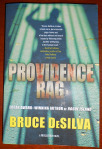 Providence Rag, the third book in my Edgar Award-winning series of hard-boiled Mulligan crime novels, is now available in a trade paperback edition.
Providence Rag, the third book in my Edgar Award-winning series of hard-boiled Mulligan crime novels, is now available in a trade paperback edition.
The fourth, A Scourge of Vipers, which has already scored starred  reviews in Publishers Weekly and Library Journal, will be published in hardcover on April 7.
reviews in Publishers Weekly and Library Journal, will be published in hardcover on April 7.
All four of the Mulligan novels can be ordered here.




